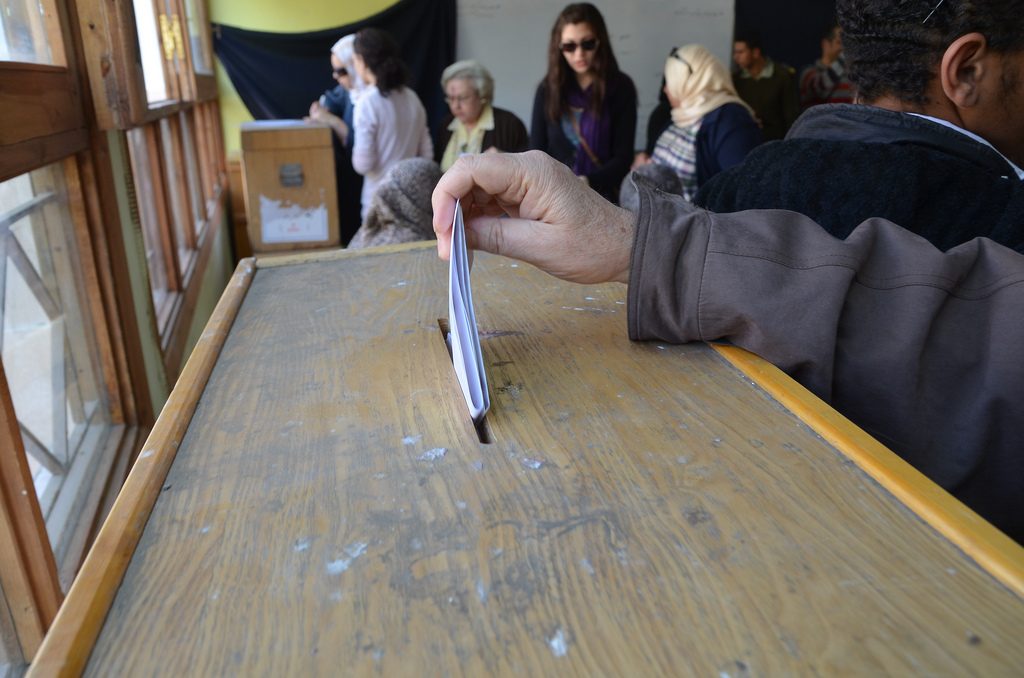
The Rand Corporation launched a new report today, ‘Voting Patterns in Post-Mubarak Egypt,’ with an event featuring report author Jeffrey Martini and commentary from Michele Dunne of the Atlantic Council’s Rafik Hariri Center for the Middle East and Samer Shehata of Georgetown University. Using data from four post-Mubarak elections, the report gives a better understanding of the future electoral prospects of Islamist and non-Islamist parties in Egypt.
Martini stressed two main findings from the report: first, that despite perceptions Egypt is not “lost to Islamists,” and that if secularists choose to contest the next parliamentary election, they will gain seats. Second, non-Islamists have the most to gain in the Delta, an area often referred to as an Islamist stronghold, and yet one where Islamists have consistently underperformed their national averages.
The introduction of the report was followed by a wide-ranging discussion of the implications of the study, what the US can learn from it, and some of the possible flaws. Dunne stressed the importance of understanding Egypt as a pluralist country, with both Islamists and non-Islamists falling across the left to right political spectrum. She also discussed voter participation rates, noting that anti-Muslim Brotherhood sentiment will not translate into more seats for secular parties if voters are not mobilized. Shehata pointed out that Martini’s findings are supported not only by his data, but by qualitative analysis. A fall in popularity for the Muslim Brotherhood’s Freedom and Justice Party should be anticipated, now that the party has been tested, though he added that a loss of votes for the FJP could result in gains for Salafis as well as non-Islamists. Dunne ended the event by stressing that the US must focus on the long-term; investing in a democratic Egypt is far more important than investing in the success of any one political movement in the short-term.
The report itself concludes:
"Should the non-Islamist parties reverse course and contest the vote, this report argues that non-Islamists would improve their position, picking up seats from their Islamist rivals. The potential boycott notwithstanding, Egypt does not appear “lost” to Islamists, nor are non-Islamists irrelevant to the country’s future. Rather, Egypt appears headed toward a much more competitive political environment in which Islamists are increasingly challenged to maintain their electoral edge."
You can watch the full event here.
Photo: Ahmed Abdel Fattah
Image: Egypt%20Elections%20Ahmed%20Abdel%20Fattah.jpg
